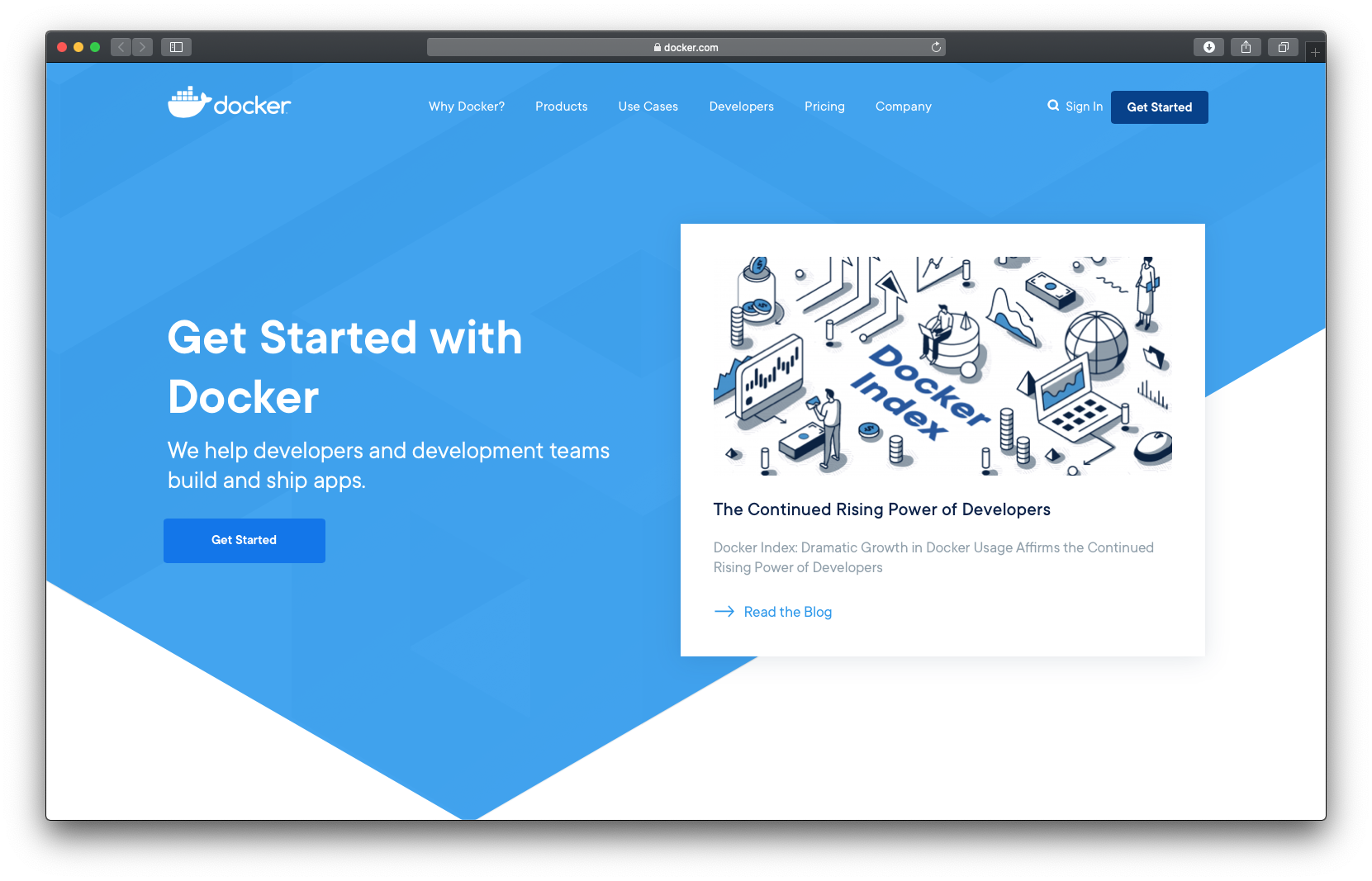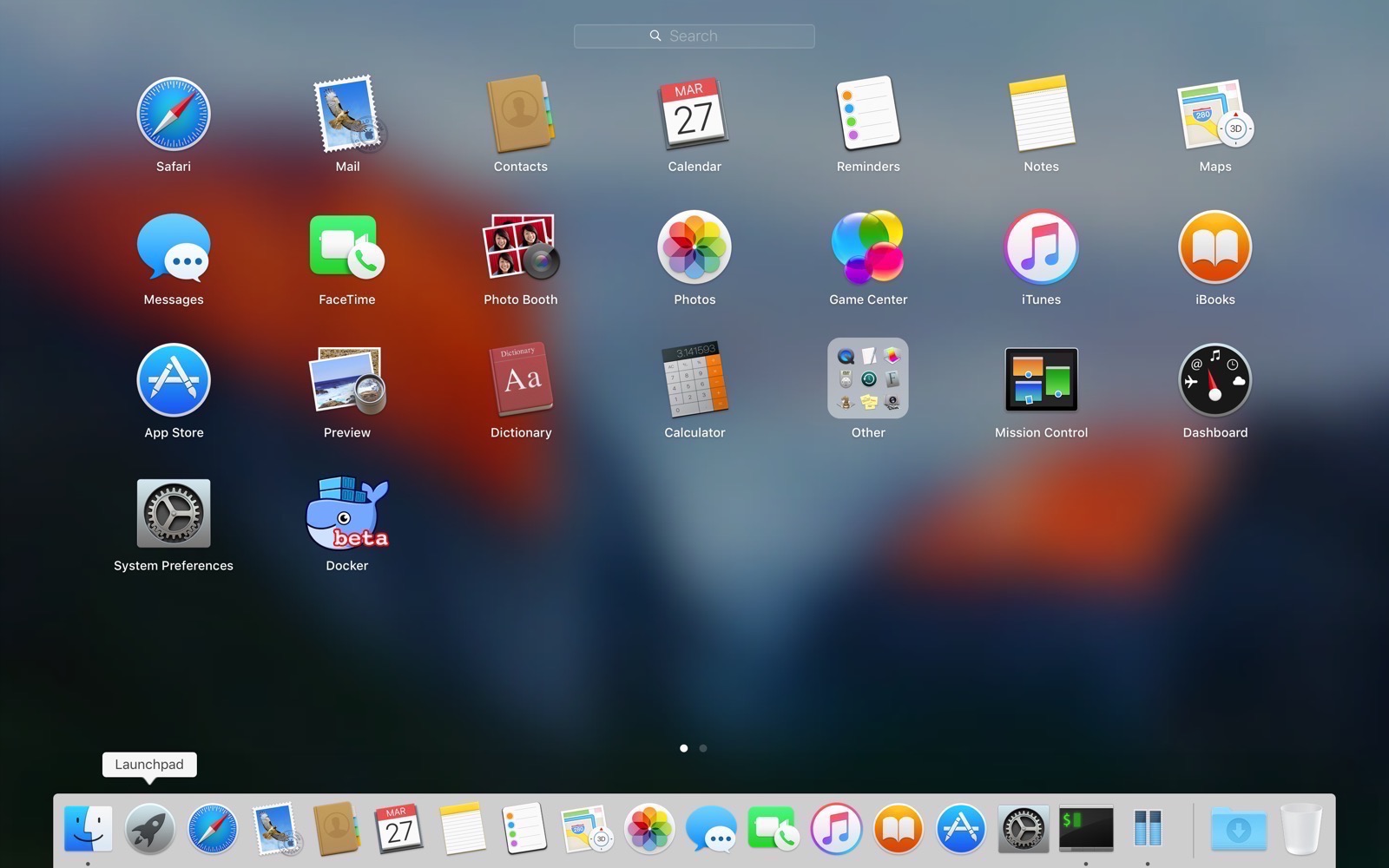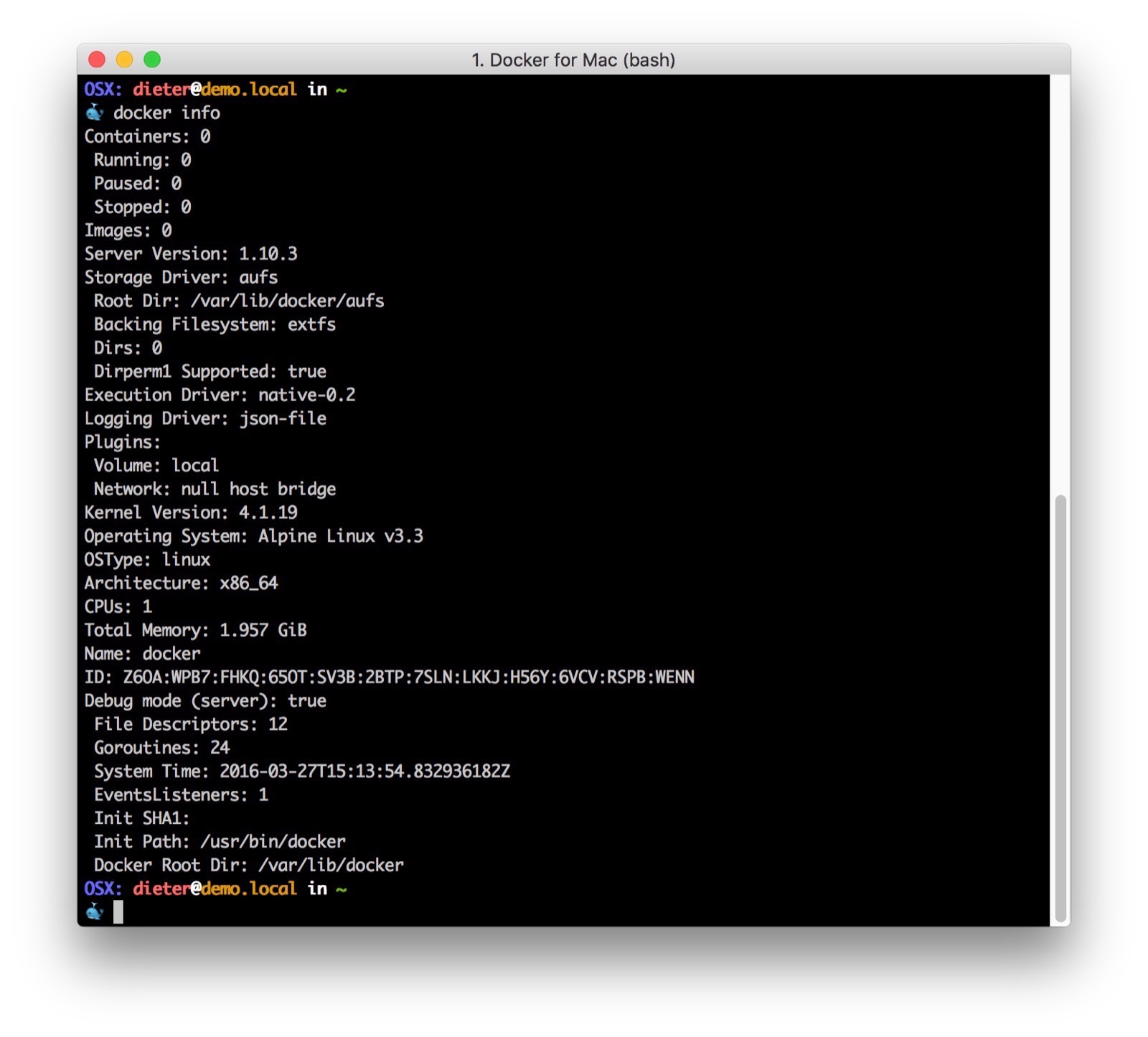Docker is currently available and also is able to run on the following Cloud environment setups given as below:. Amazon EC2. Google Compute Engine. Microsoft Azure. Rackspace. Docker is extending its support to Windows and Mac OSX environments and support on Windows has been on the growth in a very drastic manner. Level up with the best games for Windows, Mac, Android, and iOS. Get tips on the best games - adventure, strategy, or simulation games. Docker is currently available and also is able to run on the following Cloud environment setups given as below:. Amazon EC2. Google Compute Engine. Microsoft Azure. Rackspace. Docker is extending its support to Windows and Mac OSX environments and support on Windows has been on the growth in a very drastic manner. Docker Desktop 2.1.0.2 contains a Kubernetes upgrade. Note that your local Kubernetes cluster will be reset after installing this version. Docker 19.03.2; Kubernetes 1.14.6; Go 1.12.9; Docker Machine 0.16.2; Docker Desktop Community 2.1.0.1. Note that you must sign in and create a Docker ID in order to.
- Docker Mac Download Without Login
- Free Osx Download
- Docker Mac Download Old Version
- Docker Osx Download
- Docker Download Mac Brew
Estimated reading time: 5 minutes
Supported platforms
Docker Engine is available on a variety of Linux platforms,macOS and Windows 10through Docker Desktop, and as a static binary installation. Findyour preferred operating system below.
Desktop
| Platform | x86_64 / amd64 |
|---|---|
| Docker Desktop for Mac (macOS) | |
| Docker Desktop for Windows |
Server
Docker provides .deb and .rpm packages from the following Linux distributionsand architectures:
| Platform | x86_64 / amd64 | ARM | ARM64 / AARCH64 |
|---|---|---|---|
| CentOS | |||
| Debian | |||
| Fedora | |||
| Raspbian | |||
| Ubuntu |
Other Linux distributions
Note
While the instructions below may work, Docker does not test or verifyinstallation on derivatives.
- Users of Debian derivatives such as “BunsenLabs Linux”, “Kali Linux” or “LMDE” (Debian-based Mint) should follow the installation instructions forDebian, substituting the version of their distro for thecorresponding Debian release. Refer to the documentation of your distro to findwhich Debian release corresponds with your derivative version.
- Likewise, users of Ubuntu derivatives such as “Kubuntu”, “Lubuntu” or “Xubuntu”should follow the installation instructions for Ubuntu,substituting the version of their distro for the corresponding Ubuntu release.Refer to the documentation of your distro to find which Ubuntu releasecorresponds with your derivative version.
- Some Linux distributions are providing a package of Docker Engine through theirpackage repositories. These packages are built and maintained by the Linuxdistribution’s package maintainers and may have differences in configurationor built from modified source code. Docker is not involved in releasing thesepackages and bugs or issues involving these packages should be reported inyour Linux distribution’s issue tracker.
Docker provides binaries for manual installation of Docker Engine.These binaries are statically linked and can be used on any Linux distribution.
Release channels

Docker Engine has three types of update channels, stable, test,and nightly:
- The Stable channel gives you latest releases for general availability.
- The Test channel gives pre-releases that are ready for testing beforegeneral availability (GA).
- The Nightly channel gives you latest builds of work in progress for thenext major release.
Stable
Year-month releases are made from a release branch diverged from the masterbranch. The branch is created with format <year>.<month>, for example19.03. The year-month name indicates the earliest possible calendarmonth to expect the release to be generally available. All further patchreleases are performed from that branch. For example, once v19.03.0 isreleased, all subsequent patch releases are built from the 19.03 branch.
Test
In preparation for a new year-month release, a branch is created fromthe master branch with format YY.mm when the milestones desired byDocker for the release have achieved feature-complete. Pre-releasessuch as betas and release candidates are conducted from their respective releasebranches. Patch releases and the corresponding pre-releases are performedfrom within the corresponding release branch.

Nightly
Nightly builds give you the latest builds of work in progress for the next majorrelease. They are created once per day from the master branch with the versionformat:
where the time is the commit time in UTC and the final suffix is the prefixof the commit hash, for example 0.0.0-20180720214833-f61e0f7.
These builds allow for testing from the latest code on the master branch. Noqualifications or guarantees are made for the nightly builds.
Support
Docker Engine releases of a year-month branch are supported with patches asneeded for one month after the next year-month general availability release.
This means bug reports and backports to release branches are assesseduntil the end-of-life date.
After the year-month branch has reached end-of-life, the branch may bedeleted from the repository.
Docker Mac Download Without Login
Backporting
Backports to the Docker products are prioritized by the Docker company. ADocker employee or repository maintainer will endeavour to ensure sensiblebugfixes make it into active releases.
If there are important fixes that ought to be considered for backport toactive release branches, be sure to highlight this in the PR descriptionor by adding a comment to the PR.
Upgrade path
Patch releases are always backward compatible with its year-month version.
Licensing
Docker is licensed under the Apache License, Version 2.0. SeeLICENSE for the fulllicense text.
Reporting security issues
The Docker maintainers take security seriously. If you discover a securityissue, please bring it to their attention right away!
Please DO NOT file a public issue; instead send your report privatelyto security@docker.com.
Security reports are greatly appreciated, and Docker will publicly thank youfor it.
Get started
After setting up Docker, you can learn the basics withGetting started with Docker.
docker, installation, install, Docker Engine, Docker Engine, docker editions, stable, edge- Installing
- macOS troubleshooting

GitLab Runner can be installed and updated on macOS.
Installing
There are two methods for installing GitLab Runner on macOS:
- Manual installation. This method is officially supported and recommended by GitLab.
- Homebrew installation. Install with Homebrew as an alternative to manual installation.
Manual installation (official)
Download the binary for your system:
You can download a binary for every available version as described inBleeding Edge - download any other tagged release.
Give it permissions to execute:

The rest of the commands should execute as the user who will run the runners.
- When you build iOS or macOS applications on macOS, use the shell executor.The build and tests run as the identity of the logged-in user, directly on the build host.It does not run in a container. This is less secure than using container executors. For more information, see thesecurity implications documentationfor additional detail on what to keep in mind in this scenario.
Install GitLab Runner as a service and start it:
GitLab Runner is installed and will be run after a system reboot.
Homebrew installation (alternative)
A Homebrew formula is available to install GitLab.
To install GitLab Runner using Homebrew:
Install GitLab Runner.
Install GitLab Runner as a service and start it.
GitLab Runner is installed and running.
Free Osx Download
Limitations on macOS
Currently, the only proven way for it to work in macOS is by running the service in user-mode.
Since the service will be running only when the user is logged in, you shouldenable auto-login on your macOS machine.
The service will be launched as a LaunchAgent. By using LaunchAgents,the builds will be able to perform UI interactions, making it possible to run andtest in the iOS simulator.
It’s worth noting that macOS also has LaunchDaemons, services runningcompletely in background. LaunchDaemons are run on system startup, but theydon’t have the same access to UI interactions as LaunchAgents. You can try torun the Runner’s service as a LaunchDaemon, but this mode of operation is notcurrently supported.
You can verify that GitLab Runner created the service configuration file afterexecuting the install command, by checking the~/Library/LaunchAgents/gitlab-runner.plist file.
If Homebrew was used to install git, it may have added a /usr/local/etc/gitconfig filecontaining:
This tells Git to cache user credentials in the keychain, which may not be what you wantand can cause fetches to hang. You can remove the line from the system gitconfigwith:
Alternatively, you can just disable credential.helper for the GitLab user:
You can check the status of the credential.helper with:
Manual update
Stop the service:
Download the binary to replace the GitLab Runner executable:
You can download a binary for every available version as described inBleeding Edge - download any other tagged release.
Give it permissions to execute:
Start the service:

Make sure that you read the FAQ section which describessome of the most common problems with GitLab Runner.
Upgrade the service file
In order to upgrade the LaunchAgent configuration, you need to uninstall andinstall the service:
Docker Mac Download Old Version
Using codesign with the GitLab Runner Service
If you installed gitlab-runner on macOS with homebrew and your build callscodesign, you may need to set <key>SessionCreate</key><true/> to haveaccess to the user keychains. In the following example we run the builds as the gitlabuser and want access to the signing certificates installed by that user for codesigning:
macOS troubleshooting
The following relate to troubleshooting on macOS.
'launchctl' failed: exit status 112, Could not find domain for
This message may occur when you try to install GitLab Runner on macOS. Make surethat you manage GitLab Runner service from the GUI Terminal application, notthe SSH connection.
Failed to authorize rights (0x1) with status: -60007.
If GitLab Runner is stuck on the above message when using macOS, there are twocauses to why this happens:
Make sure that your user can perform UI interactions:
The first command enables access to developer tools for your user.The second command allows the user who is member of the developer group todo UI interactions, e.g., run the iOS simulator.
Make sure that your GitLab Runner service doesn’t use
SessionCreate = true.Previously, when running GitLab Runner as a service, we were creatingLaunchAgentswithSessionCreate. At that point (Mavericks), this wasthe only solution to make Code Signing work. That changed recently withOS X El Capitan which introduced a lot of new security features thataltered this behavior.Since GitLab Runner 1.1, when creating aLaunchAgent, we don’t setSessionCreate. However, in order to upgrade, you need to manuallyreinstall theLaunchAgentscript:Then you can verify that
~/Library/LaunchAgents/gitlab-runner.plisthasSessionCreateset tofalse.
fatal: unable to access 'https://path:3000/user/repo.git/': Failed to connect to path port 3000: Operation timed out error in the job
If one of the jobs fails with this error, make sure the runner can connect to your GitLab instance. The connection could be blocked by things like:
- firewalls
- proxies
- permissions
- routing configurations
Help & feedback
Docs
Edit this pageto fix an error or add an improvement in a merge request.Create an issueto suggest an improvement to this page.
Show and post commentsto review and give feedback about this page.
Product
Create an issueif there's something you don't like about this feature.Propose functionalityby submitting a feature request.
Join First Lookto help shape new features.
Feature availability and product trials
View pricingto see all GitLab tiers and features, or to upgrade.Try GitLab for freewith access to all features for 30 days.
Get Help
If you didn't find what you were looking for,search the docs.
If you want help with something specific and could use community support,post on the GitLab forum.
Docker Osx Download
For problems setting up or using this feature (depending on your GitLabsubscription).
Docker Download Mac Brew
Please enable JavaScript to view thecomments powered by Disqus.